Part l
Why We Need The World Yoga Festival
On February 23rd, 2018 the Yoga community woke up to the shocking video from the opening ceremony at the Northwest Yoga Conference in Seattle, Washington. Aadil Palkhivala, was to receive an award of recognition during the commencement function. Due to illness, Aadil asked his wife and spiritual partner, Savitri to speak on his behalf. He was given 10 minutes to address the audience and passed this time slot onto Savitri.
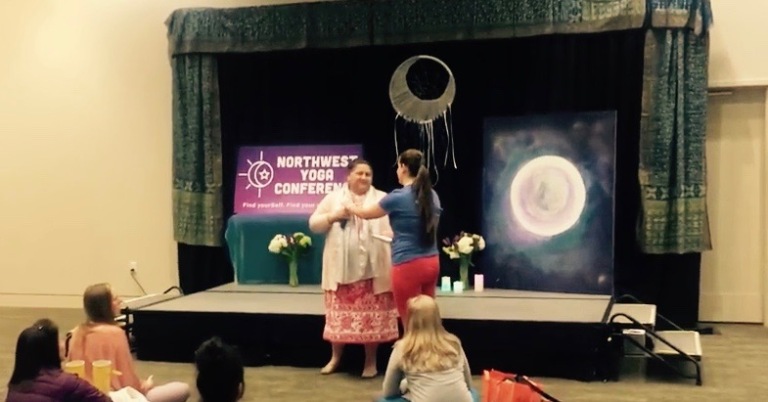
At just under 5 minuets Melissa Hagedorn, director of Northwest Yoga Conference, physically halts Savitri, who is visibly surprised by the interruption. Savitri asks to be able to finish her thoughts on the theme of the festival, but not only does Melissa insist Savitri should stop talking, she also tells Savitri to leave the room and demands all Savitri’s students vacate along with her.
I gasped when Melissa took the microphone from Savitri’s hand and told her to leave. The entire exchange was bizarre and seemingly unprovoked. Savitri simply looked at the participants gathered and said, “This is what is wrong with Yoga today.” It was a heartbreaking moment of recognition.
I write about the ways that Westerners and especially white women encroach on the subject of Yoga. I highlight the mis-translations and botched interpretations of Vedic epistemologies and Yoga literature, the careless pronunciation of Sanskrit, whose linguistic philology is in its phonetic accuracy, as well as the shallow return of Asana when dislocated from its ontological roots, but mainly I write about how all of the above intersects with imperial whiteness.

Since Roopa Singh’s formation of SAAPYA, South Asian American Projects in Yoga in Amercia in 2013, there have been many dialogues around South Asian, specifically Indian representation in Yoga. From Yoga Journal covers and conferences to Bhaktifest and Yoga Alliance. It is worth noting, Aadil & Savitri were only 2 of 3 presenters of Indian descent at Northwest Yoga Conference.
The dramatic tension between being honored with an award acknowledging your contribution in the field of Yoga, to having your actual presence expelled from the room may never be reconciled and is indicative of the greater whitewashing at play forcing the erasure of Indian origin and participation from the meaning and market of Western based Yoga.
I’m left with an extreme sadness and reminded of the closing words of Roopa Singh from this groundbreaking video. Roopa is addressing white Yoga teachers when she says, “As you fill that space, teach in that space, know that there is someone, who looks very much like my mother and looks very much like my father, who is not there, who doesn’t feel as confident to integrate, to be in public in this country. Just know that you are taking a space that is precious.”
 (The first public SAAPYA dialogue, 2013)
(The first public SAAPYA dialogue, 2013)
A week after the incidence at the Northwest Yoga Conference, I was taking a Yoga class at a local studio when I came across an advertisement for the Nomadic Yoga Festival here in Albuquerque, New Mexico. Amid an image of serene mountainous clouds was the tagline Yoga, Fitness, Brew, Coffee, Music and More.
One of the selected presenters combines pig yoga with margaritas at a popular yoga event in Albuquerque called, Yogaritas, where the favorite position is Bakasana, crane or crow pose. What determines the dificulty is the ability to hold the arm balance while sipping your margarita.
Meanwhile, New Mexico has the highest alcohol related death rates of any state in America, but the event siphons a portion of the proceeds off to a local animal shelter so, cheers.
There is a disturbing trend in Western Yoga, from “yoga scholars” to yoga teachers, yoga products and yoga kimicks, all designed to numb you to the very thing Yoga was to free you from, self delusion.

 (photo: Yogaritas)
(photo: Yogaritas)
“When an eminent Vedantic scholar and teacher suggested to us the West needs an authentic Yoga festival, we knew exactly what he meant.
The same parampara tradition of teacher-student handover of ancient wisdom is the hallmark of authentic Yoga lineages. It is these that we wanted to nurture and present to our audience of Western Yogis at the World Yoga festival.
These traditions are free from the whim of a single teacher ‘reinventing’ Yoga for a modern world.”
-Ram and Sonali Banjeree
 (Photo: Ram & Sonali Banerjee)
(Photo: Ram & Sonali Banerjee)
I first met Ram and Sonali Banerjee in 2016 at the International Yog Festival in Rishikesh, India, not to be confused with the International Yoga Festival that takes place across the Ganga at Parmarth Niketan.
Under the guidance of Swami Santatmananda Saraswati of Arsha Vidya Gurukulam, the International Yog Festival was revisioning what it meant to produce and curate a Yoga festival. To this end, the festival focused on lineage based teachers and practices. It was here that Ram & Sonali invited me to be part of the World Yoga Festival, which sought to use the same linage based template, the first of its kind in the West.
 (Sonali, Sri & Ram at the International Yog Festival, Rishikesh, 2016)
(Sonali, Sri & Ram at the International Yog Festival, Rishikesh, 2016)
Sonali, Ram & I enjoy the same sampradāya. A sampradāya is a tradition of knowledge. Integral to the continuity of the sampradāya is the teaching methodology, the means that insures the knowledge is handed down intact, from generation to generation. In oral cultures, the process by which these knowledges are maintained is through the guru/śiṣya paramparā, teacher/student relationship, i.e. direct, interpersonal communication.
“We don’t say there are many gods, we don’t say there is one god, we say there is only God. If you want to understand Indian culture you need to understand this, without this it’s impossible. That’s why Indian heritage is so profound. It’s not a simple system of a few concepts of belief that you hand over and it’s over. It’s a thing to be understood, that’s why it is a vertical flow, it has no lateral organization…”
– Swami Dayananda Saraswati
(Swami Shantatmananda Saraswati and student, WYF 2016)
There is a certain cadre of Western yoga people, who fancy the idea of post-lineage as a grassroots approach to Yoga. It fits a Foucaultian model of deconstructing power, knowledge & social control and reimagines horizontal structures of peer sharing. However, the superimposition of this post-modern model onto the traditional guru/śiṣya relationship has proved a disaster for contemporary understandings of Yoga.
Historical analysis is not the same as knowing the nature of yourself, these are two completely different spheres of knowledge. The knowledge of Indian ontology is not maintained in Academia. The traditional keepers of Vedic knowledge have been the sampradāyas, the various lineages that have nurtured this indigenous wisdom from time immemorial. If an understanding of Yoga is what you seek, find a teacher committed to a lineage, who understands what Yoga was intended to mean as a mokṣa sādhana, path to self-liberation…
(Swami Brahmavidananda Saraswati in a moment of silence WYF 2017)
The Muṇḍaka Upaniṣad is explicit when it says, go to a teacher, who is both a Śrotriya and a Brahmaniṣṭa.
तद् विज्ञानार्थं स गुरुमेवाभिगच्छेत् समित्पाणिः श्रोत्रियं ब्रह्मनिष्टम्॥ ( मु १.२.१२)
“Therefor, to gain this knowledge of Brahman, the student must go with sacrificial twigs in hand to a teacher who is well versed in the scriptures and who has clear knowledge about Brahman.” Muṇḍaka 1, 2, 12
“A guru is a teacher, who has the capacity to dispel the ignorance covering whatever it is one wants to know. If I want to end my ignorance of astronomy, I need to find someone who knows something about the stars and the planets. It will not do me any good to go to a marine biologist, who cannot distinguish a galaxy from a constellation. I must find someone who has lost his ignorance in the area of my interest; someone who has the knowledge I seek.”
– Swami Dayananda Saraswati, Introduction to Vedanta
A Śrotriya is one who has studied the Vedas and who through the sampradāya, the teaching lineage, has received not only the knowledge of oneself, but the pedagogical methodology that allows for the continuous flow of Vedic knowledge. It is not merely book learning…in fact, it’s not book learning at all.
Brahman is not someone or something other than you the subject and is defined in the Taittirīya Upaniṣad as satyam, jñānam and anantam. To understand your self reality as that satyam, existence, that is jñānam, known without a secondary means of knowledge and is anantam, without end, requires a teacher, who understands how to wield the words of the Upaniṣad in a way that you become undeniably known to yourself. For this, one must reconcile their current concept based upon the misaprrehension of the body as the sole criterion of existence.
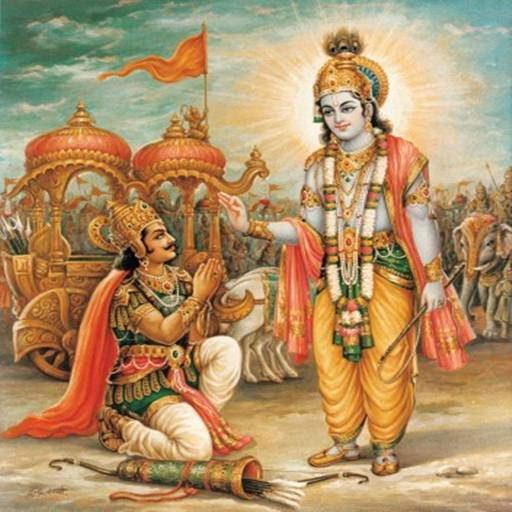
There is a saying, in order to understand the Bhagavadgītā, you need to read the verses. In order to understand the verses, you have to know the Bhagavadgītā. It’s a catch 22, which implies that as you read the Gītā you need the vision of the Gītā in order to contextualize the meaning of the verse. For this, you require a teacher. There is no other way, because your self-styled interpretation, no matter how academically inclined, will not remove your self-ignorance.
For many teachers like Swami Svatatmananda Saraswati pictured below at the World Yoga Festival, there is the recognition that the bond of knowledge received from the teacher is one that has been unbroken for thousands and thousands of years. How do we know it is unbroken, because the knowledge of the Veda remains. It is alive, transmittable and embodied by the mind of the teacher.
 (Swami Svatatmananda Saraswati talking on Vedic astrology, World Yoga Festival 2017)
(Swami Svatatmananda Saraswati talking on Vedic astrology, World Yoga Festival 2017)
The World Yoga Festival has made traditional Vedic/Yoga teaching a priority, inviting lineage based teachers from India, teachers of Indian descent in the West and local non-Indian teachers from different communities in England, creating a truly cross-cultural Yoga sangha dedicated to promoting authenticity in Yoga.
This year Swamini Brahmaprajnananda Saraswati will join the presenters. Prior to her becoming a Sannyasi, she trained as a psychologist. She is pictured below in 2016 as a KAICIID fellow, not only is she a śrotriya, one who understands the intent of the scripture, she is also a brahmaniṣṭa, steadfast in that knowledge of herself. Swamini is committed to interfaith dialogue and empowering women to see themselves whole.
It is a rare opportunity to listen to such scholars in any setting, but especially in the informal environs of an outdoor festival. To attend a lecture, share a meal, or sit on the lawn with such esteemed teachers, who have never been this accessible to a Western audience, helps to demystify the distance between the student and the teacher and to create friendship in the pursuit of knowledge.
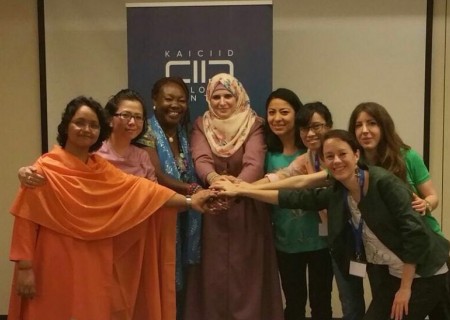 (Swamini Brahmaprajnananda Saraswati pictured far left)
(Swamini Brahmaprajnananda Saraswati pictured far left)
When exploring the websites of Yoga festivals like Northwest Yoga Festival or organizations like British Wheel of Yoga or Yoga Alliance, I often look at the presenters page to see if there is South Asian representation. Usually, a single Indian teacher is added merely for the veneer of inclusion.
Out of the 34 presenters that are currently listed on World Yoga Festival’s website, half the presenters are of South Asian descent with half currently living in India, providing Indians with equal opportunity in the realm of white dominated Yoga teaching and commerce. The teachers span a wide range of perspectives, exemplifying the historical pluralism at the heart of Indian existential thought and practice.
Ram & Sonali have created a Yoga festival for the world, based upon the value of Sanatana Dharma, which grants you the freedom to ask your own questions and to seek those answers that most resonate with you at the time. Ram & Sonali are deeply committed to Yoga and to those who seek its wisdom. Their devotion is what makes The World Yoga Festival, now in its third season, a truly unique space for authentic self-discovery.
Part ll
The World Yoga Festival along the River Thames
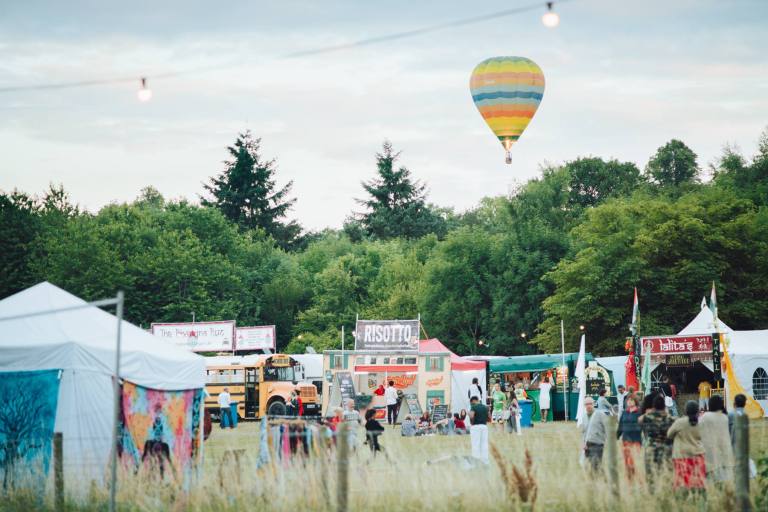
The World Yoga Festival is located along the river Thames in Beele Park, a land trust comprised of 350 acres dedicated to habitat and wildlife conservation. Large tents accommodate the various workshops as well as some of the meeting places like the ever popular Chai Tent, which overlooks a picturesque pond that when weather permits, participants enjoy swimming in!
 (Yoga Acharyas relaxing in the Chai tent, with Ram & Sonali, WYF 2016)
(Yoga Acharyas relaxing in the Chai tent, with Ram & Sonali, WYF 2016)
Last summer I was deeply moved by the performance at the opening ceremony by Raheem Mir, who is a queer, Pakistani/Britsh Muslim Kathak dancer. It was a profound statement of spiritual oneness and the resulting social insistence of inclusion.
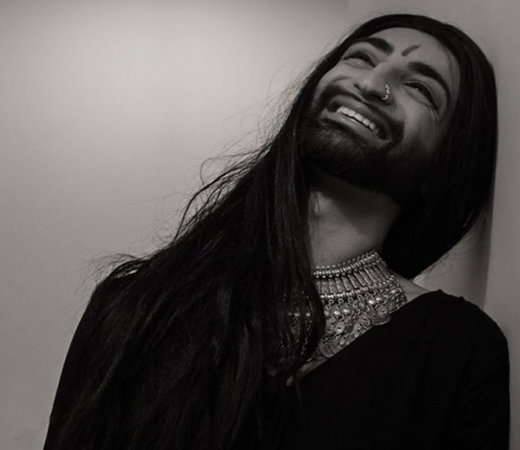 (Raheem Mir, queer, Muslim Pakistan/British Kathak dancer commenced WYF 2017)
(Raheem Mir, queer, Muslim Pakistan/British Kathak dancer commenced WYF 2017)
There are daily workshops in Asana, Pranayama, Meditation, Sound Therapy, Ayurveda, Advaita Vedanta, Yoga Sutra, Vedic Astrology, Sanskrit Chanting and more. Below is an Asana class in the main tent for all ages and levels with Iyengar senior teacher Zubin Zarthoshtima, who currently resides in Mumbai. The list of presenters is truly impressive.
The World Yoga Festival has not spared a single comfort, from the amazing food trucks featuring raw and vegan cuisine to the bamboo floored trailer bathrooms and luxurious showers. This year they have added hot tubs! Camping has never been so effortless!
 (remarkable glamping bathrooms and hot showers!)
(remarkable glamping bathrooms and hot showers!)
 (This year’s newest addition, hot-tubs!)
(This year’s newest addition, hot-tubs!)
The family area is perhaps one of the most joyful places on site. The festival is dedicated to providing a family friendly environment. Children are engaged in Asana and art making, storytelling and meditation and thrive in the outdoor atmosphere.
“World Yoga Festival is my gift to my partner, daughter and mother each year, it’s our family holiday.” Kerrie Frances
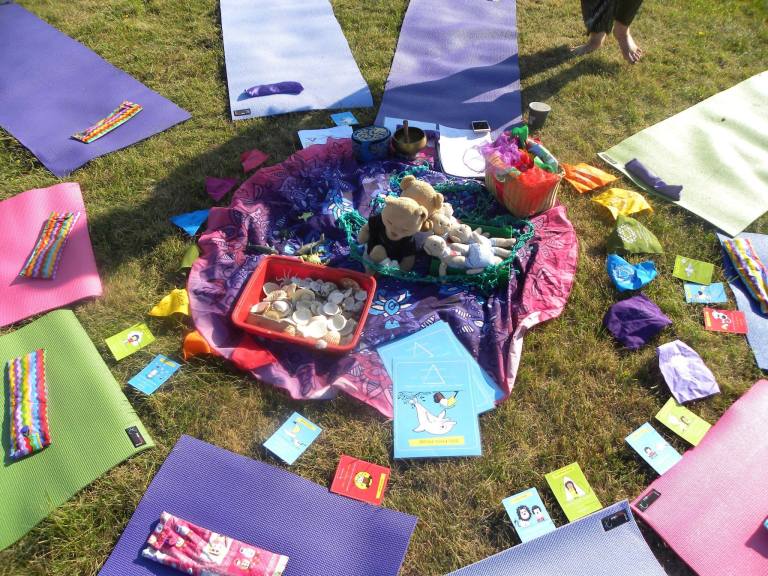


Come, be part of the prayer, be part of the magic that is Yoga. Be in affinity with those who care about Yoga as a knowledge system. Nurture your own self longing. Give yourself a place to explore. Bring your family, your children, your parents and your grandparents. There is something for everyone and so much more!
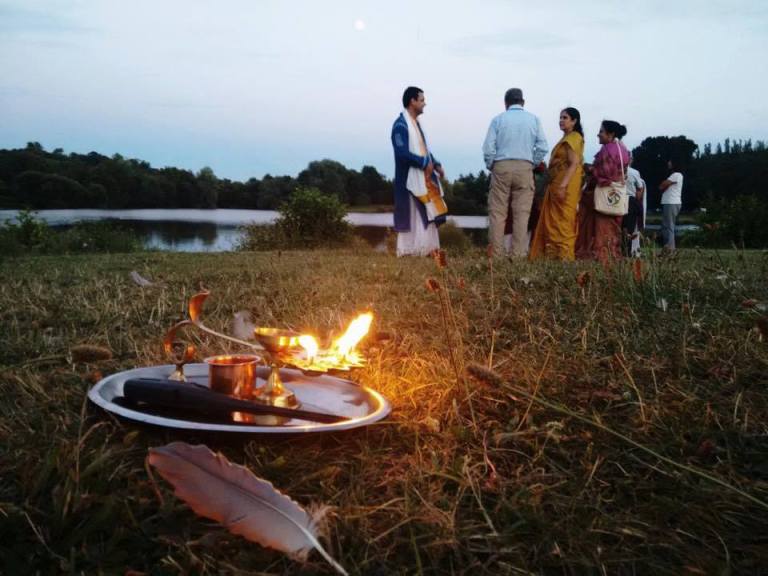 (Evening Arati!)
(Evening Arati!)
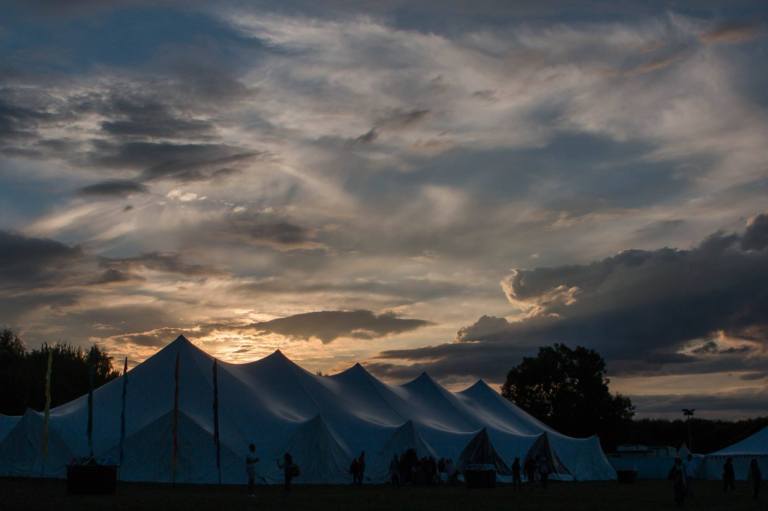
At night there is incredible music in the main tent where there is plenty of room to dance, lay down, soften into Asana, tumble with your children or just sit quietly. There are no drugs and no alcohol, just the creativity of community.
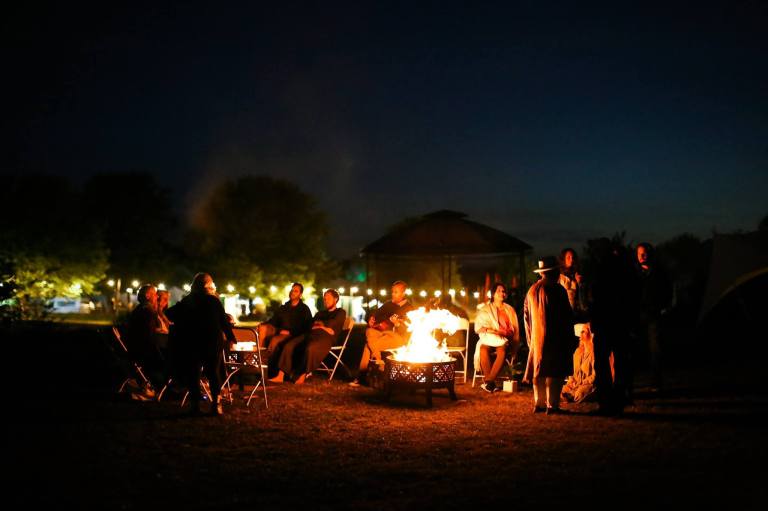
Evening entertainment ranges from Indian classical dance and music to Kirtan and contemporary fusion. “Shammi Pithia is a British Asian composer and producer based in east London. Shammi follows the path of great artists such as Nitin Sawhney, Talvin Singh and Niraj Chag.”

Shammi Pitha and Band will be performing Saturday night, July 21, 2018. Here is glimpse of Shammi playing the Bansuri, an instrument indigenous to South Asia that appears in Hindu, Buddhist and Jain temple paintings. The Bansuri is also used by Krsna to express his Ananda, his fullness.
Yoga is meant for this fullness, for you to experience and see yourself as full.
ॐ पूर्णमदः पूर्णमिदं पूर्णात्पुर्णमुदच्यते
पूर्णस्य पूर्णमादाय पूर्णमेवावशिष्यते ॥
ॐ शान्तिः शान्तिः शान्तिः ॥
oḿ pūrṇam adaḥ pūrṇam idam
pūrṇāt pūrṇam udacyate
pūrṇasya pūrṇam ādāya
pūrṇam evāvaśiṣyate
Completeness is that, completeness is this, from completeness, completeness comes forth. Completeness from completeness taken away, completeness to completeness added, completeness alone remains.
– Translation Swami Dayanada Saraswati

“A fullness dependent on experience grants reality to duality. To enjoy such a fullness one engages in various practices seeking the release of nirvikalpa samādhi, or one courts moments of great joy. Courting the experience of non-duality is based on the fear of the experience of duality. Duality is seen as something from which one must escape. But escape by means of experience is a false freedom. You, the limited being, and idam jagat, this world which limits you, are always waiting for the experience to be over. Śruti is not afraid of experiential duality. The only problem is the conclusion of duality – not in experience. The problem lies in the well entrenched conclusion: “I am different from the world; the world is different from me.” This conclusion is the central core of the problem of duality – of Saṃsāra. Śruti does not accept this conclusion, but contradicts it by stating that both “I” and “this” are pūrṇam. Śruti flatly negates the conclusion of duality.”
Swami Dayananda from Pūrṇamadaḥ Pūrṇamidam

“You are not a matter for belief, but for understanding!”
Buy your tickets now, you’ll be so happy you did!
I can’t wait to see you there!




Thank you Sri!! Miss you terribly… I was so lucky to get a glimpse of your teaching through this lineage when I did. I think and realize now how much it saved me at the time.
LikeLike
Dear Raha, I miss you so in every way!
LikeLike